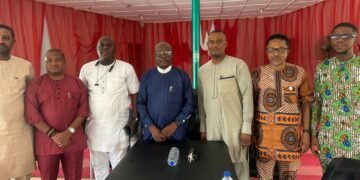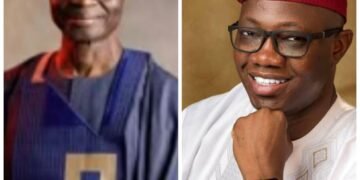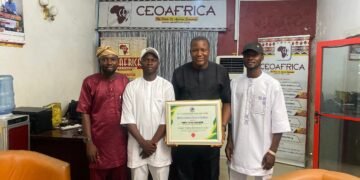Anywhere around the world, the legislature provides the pillars for democracy. It i’s the most important organ of democracy; so it is in the best interest of democracy to protect the institution of the National Assembly. But in Nigeria’s own democracy, it appears the reverse is the case. Political heavyweights in the executive corner of power have been busy deflating the strength of what should be a shield for democratic elements.
Instead of working for democratic institutions, politicians are busy doing otherwise. But we must learn this time that when we do that, we are not ultimately pulling down Bukola Saraki, it is the legislative institution and the nascent democracy itself that we are pulling down. We would come and go, but we must give support to that institution, because that is what represents that people.
The collective will should be to put a strong institution in a place that Nigerians would begin to respect, and say it is doing things that affect lives, its members are above board. If you look at the last two years, when we talk about corruption, unlike before, there have been no scandal or corruption issues in the National Assembly. There were issues in the Senate before, like mismanagement of funds or trying to cover up something or allegations that money was shared.
Those are not the things you see in this Senate. We should try to continue like that. It might take time; having a procedure that was opaque, it is not overnight that the system would win the confidence of the people. But Nigerians are beginning to see and appreciate the work of the National Assembly, and no matter what you say about this Senate, you might not like them, but they are people that get things done. These are people that have the capacity to make things happen. They are not there to gloss over things or make sensational issues; they are there to improve the lives of the people and that is what they have evidently been doing.
It does not really matter the level of conspiracy against the figure and personality of Senate President Bukola Saraki, who’s been quite illustrious to Nigeria’s democratic institution, yet has been the most persecuted. The new political gambit to fall this great Nigerian, like the many others in the past, is deemed to fail, no matter the influence of those who are involved.
When Saraki recently raised the alarm on the floor of the Senate over a purported plot by the IGP to implicate him, using ‘coerced’ cultists, fine citizens know that another political warfare against democracy was up the sleeves of spoilers.
Like the CCT trial, Nigerians know that this is another round of fraud, and are, therefore, not fooled. Recall that the other day, the court agreed with the CCT that, on the 15 counts of the 18 charges filed against Saraki, it was proved beyond reasonable doubt that the evidence was based on hearsay that lacked probate value. Notably, it averred, like the CCT, that the information used in putting together the charges against the Senate President by the Federal Government did not connect him with the charges as demanded by law.
It further held that the Federal Government erroneously came to the conclusion that the onus to prove the 15 charges was on the defendant, whereas it is established fact that the party that alleges must be the one to prove beyond reasonable doubt. Beyond the legal aspects of this matter, which have put the judiciary on the spot once again, the timing of the judgement is believed to have corroborated the notion that the case may begin to suffer the burden of the weight of politicisation.
This is made more real, given the current political permutations in which Saraki is regarded as one of the men who wield the influence to define the 2019 polls. Knowing how high-profile cases are used as tools for political bargaining in Nigeria, the projection could be that, for as long as the asset declaration case remains, Saraki can continue to be put under check and close control. Whichever of the calculations is at play, many believe it is not right to drag the judiciary into a political battle.
It is already being argued in some political quarters that the cases are being used to tame Saraki’s political tentacles especially his rumoured presidential ambition and likely defection. Whatever reasons, real or imagined by the persecutors within the executive parlour of power, we all must know that what appears to be a fight against the person of Saraki is actually a fight against democracy and ultimately against the nation’s well-being.
Salako is resident in Lagos.













